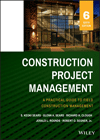CII Sees Room To Improve Industrial Project Performance
After analyzing the performance of 975 light and heavy industrial projects in its benchmarking database, the Construction Industry Institute found that only 5.4% met "best in class" predictability in terms of cost and schedule. While it is no surprise that over-budget and behind-schedule jobs pose problems for owners, the report also concludes that projects under budget and ahead of schedule create a missed opportunity for owners because money set aside for such projects cannot be invested in other ways.
 |
| DORAN |
CII Director Wayne Crew, who presented the data at the research group's annual conference in Baltimore on July 24-25, said the report underscores the basics of engineering economics where the value equation is both cost and schedule. If the benefit stream starts too late or costs are very out of proportion, the net present value is significantly less. "Projects anywhere out of the center quadrant don't deliver the same value," he added (see chart).
 _ _
|
| GILKEY |







